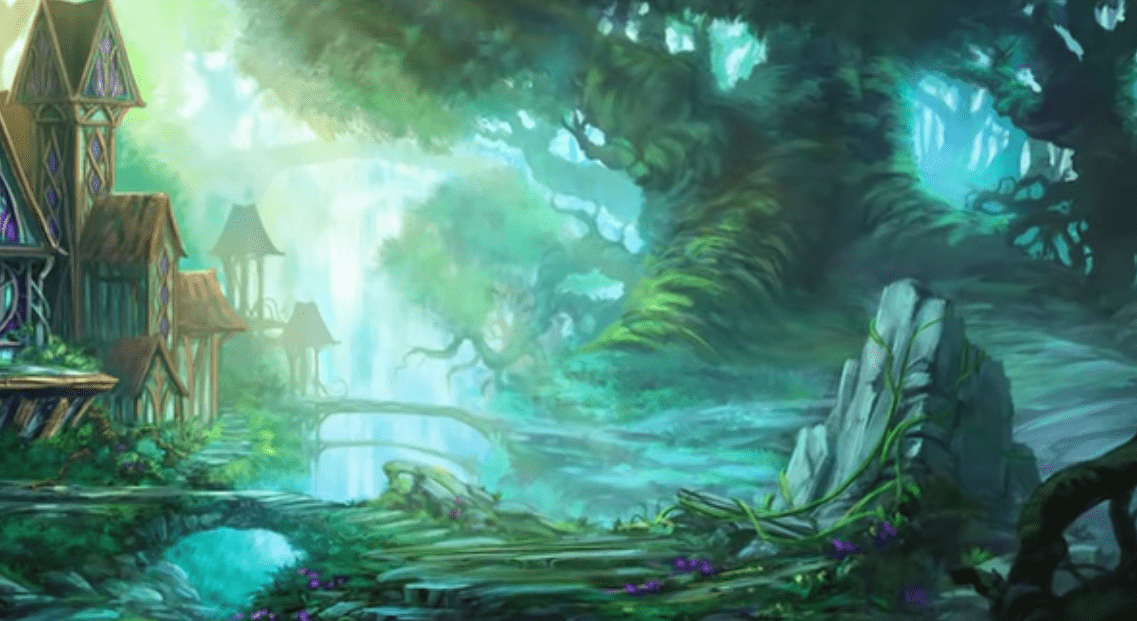Erupting Earth 5E: A Comprehensive Guide For D&D Enthusiasts
So here we are, diving headfirst into the fiery world of Erupting Earth 5E. Whether you're a dungeon master looking to spice up your campaign or a player searching for new ways to devastate your enemies, this spell is a game-changer. Erupting Earth 5E has quickly become a fan favorite in the Dungeons & Dragons (D&D) community, and for good reason. It's not just about blowing stuff up—it’s about strategy, creativity, and unleashing chaos in the most epic way possible.
But before we dive deeper, let’s set the scene. Imagine this: you’re in the middle of an intense battle. Your enemies are closing in, and things are looking grim. Then, BAM! You cast Erupting Earth, and the ground beneath your foes erupts into a violent surge of molten fury. It’s like nature itself is on your side. Sounds pretty sweet, right? Well, stick around because we’re about to break it all down for you.
This article isn’t just another dry walkthrough. We’re going to explore everything you need to know about Erupting Earth 5E, from its mechanics to advanced tactics. And don’t worry—we’ll keep it real, fun, and easy to follow. Let’s get started!
Read also:Mastering The Euro Symbol A Comprehensive Guide You Wonrsquot Want To Miss
Table of Contents
- What is Erupting Earth 5E?
- Mechanics of Erupting Earth
- Casting Requirements and Components
- How Erupting Earth Works in Combat
- Advantages of Using Erupting Earth
- Disadvantages and Limitations
- Strategies for Maximum Impact
- Combining Erupting Earth with Other Spells
- Real-World Examples of Erupting Earth in Action
- Final Thoughts and Recommendations
What is Erupting Earth 5E?
Alright, let’s get down to business. Erupting Earth is a 3rd-level transmutation spell that lets you unleash the raw power of the earth beneath your enemies’ feet. It creates a violent upheaval of terrain, dealing damage and creating difficult terrain that can slow down or even trap your foes. Think of it as nature’s version of a landmine, but way cooler.
Key Features of Erupting Earth
Here’s a quick rundown of what makes Erupting Earth so awesome:
- Damage Type: Bludgeoning damage—perfect for smashing those pesky armored enemies.
- Area of Effect: A 20-foot cube—plenty of room to catch multiple enemies in one go.
- Duration: Instantaneous, but the difficult terrain it creates lasts until dispelled or destroyed.
- Save: Dexterity saving throw to avoid being caught in the upheaval.
Now, this spell isn’t just about dealing damage. The difficult terrain it leaves behind can be a game-changer in combat, giving you and your allies a strategic advantage. Let’s explore that a bit more in the next section.
Mechanics of Erupting Earth
When you cast Erupting Earth, you choose a point on the ground within range. A violent surge of molten rock and debris erupts from the earth, dealing 3d12 bludgeoning damage to each creature in the area. If they succeed on a Dexterity saving throw, they take only half damage. But wait, there’s more!
After the initial eruption, the area becomes difficult terrain. This means that any creature moving through the area must spend extra movement to do so. It’s like turning the battlefield into a maze of obstacles, making it harder for your enemies to reach you or your allies.
How Difficult Terrain Works
Difficult terrain is a game mechanic that slows down movement. Here’s how it works:
Read also:Unveiling The Secrets Of Erosme Your Ultimate Guide To Modern Romance And Connection
- Each foot of movement in difficult terrain costs 2 feet of movement.
- Creatures with a fly speed or other means of avoiding ground-based movement are unaffected.
- It can be used to block line of sight or create choke points on the battlefield.
This makes Erupting Earth not just a damage-dealing spell, but a powerful tool for controlling the flow of combat.
Casting Requirements and Components
Before you can start blowing stuff up, you need to know what it takes to cast Erupting Earth. Here’s a breakdown of the requirements:
Components
Erupting Earth requires both verbal and somatic components. That means you need to speak the incantation and perform the gestures to cast it. No problem if you’re a wizard or a sorcerer, but it might be tricky for classes that rely on stealth or ranged attacks.
Material Components
You also need a tiny piece of rock or stone as a material component. Don’t worry, it’s not hard to come by. Most adventurers carry a pouch of rocks or stones for exactly this purpose.
Now, let’s talk about the casting time. Erupting Earth has a casting time of 1 action, which means you can cast it during your turn in combat. This makes it a quick and effective way to turn the tide of battle.
How Erupting Earth Works in Combat
Okay, so you’ve got the spell ready to go. What happens when you cast it in the heat of battle? Let’s break it down step by step:
Step 1: Choose Your Target Area
Pick a point on the ground within range. This is where the eruption will occur. Try to aim for areas where your enemies are clustered together for maximum effect.
Step 2: Roll for Damage
Roll 3d12 to determine the bludgeoning damage dealt to each creature in the area. If they succeed on their Dexterity saving throw, they take only half damage. Simple, right?
Step 3: Create Difficult Terrain
After the initial eruption, the area becomes difficult terrain. This can be a huge advantage if you use it strategically. For example, you can create choke points to funnel enemies into your allies’ area of effect spells or force them to take longer routes to reach you.
Remember, difficult terrain affects everyone, including your allies. So use it wisely!
Advantages of Using Erupting Earth
Now that we’ve covered the basics, let’s talk about why Erupting Earth is such a great spell:
- High Damage Output: With an average damage roll of 21, Erupting Earth packs a serious punch.
- Area of Effect: A 20-foot cube is large enough to catch multiple enemies in one go.
- Strategic Control: The difficult terrain it creates can be used to control the flow of combat.
- Versatility: It works well against both melee and ranged enemies.
These advantages make Erupting Earth a versatile and powerful spell that can be used in a variety of situations. Whether you’re fighting a horde of goblins or a single powerful foe, this spell has got you covered.
Disadvantages and Limitations
Of course, no spell is perfect. Here are a few things to keep in mind when using Erupting Earth:
- Material Component Requirement: You need a tiny piece of rock or stone to cast it. Not a big deal, but worth noting.
- Difficult Terrain Affects Everyone: Your allies will also be slowed down by the difficult terrain, so use it strategically.
- Save Mechanic: Creatures with high Dexterity saves might avoid most of the damage.
Despite these limitations, Erupting Earth is still a solid choice for any spellcaster looking to add some chaos to the battlefield.
Strategies for Maximum Impact
Now that you know how Erupting Earth works, let’s talk about how to use it effectively. Here are a few strategies to help you get the most out of this spell:
1. Combine with Other Area of Effect Spells
Pair Erupting Earth with spells like Fireball or Thunderwave to deal massive damage to groups of enemies. The difficult terrain will slow them down, making them easier targets for your other spells.
2. Use It to Block Enemy Movement
Create choke points or barriers to funnel enemies into your allies’ area of effect spells or force them to take longer routes to reach you.
3. Target Weak Points
Aim for areas where your enemies are clustered together or where they have weak saves. This will maximize the damage dealt and increase the chances of success.
Remember, the key to using Erupting Earth effectively is creativity and strategy. Think outside the box and use the environment to your advantage.
Combining Erupting Earth with Other Spells
Erupting Earth works great on its own, but it really shines when combined with other spells. Here are a few combinations to try:
1. Fireball
Cast Erupting Earth to create difficult terrain, then follow up with Fireball to deal massive fire damage to your enemies. The slowed movement will make them easier targets for your fireball.
2. Thunderwave
Use Erupting Earth to slow down your enemies, then cast Thunderwave to push them back and deal thunder damage. This combo is especially effective against melee enemies.
3. Wall of Fire
Create a wall of fire in the area affected by Erupting Earth. The difficult terrain will force your enemies to walk through the fire, dealing even more damage.
These combinations can turn the tide of battle in your favor, making Erupting Earth an even more powerful spell.
Real-World Examples of Erupting Earth in Action
Let’s take a look at some real-world examples of Erupting Earth in action:
Example 1: Battling a Horde of Goblins
Your party is surrounded by a horde of goblins. You cast Erupting Earth, creating a violent upheaval of terrain that deals damage to the goblins and slows them down. Your allies use the opportunity to focus fire on the slowed goblins, turning the tide of battle in your favor.
Example 2: Facing a Powerful Dragon
You’re facing a powerful dragon that’s breathing fire on your party. You cast Erupting Earth to create difficult terrain in the dragon’s path, slowing it down and giving your allies time to prepare for the next attack.
Example 3: Trapping Enemies in a Dungeon
You’re exploring a dungeon and come across a group of enemies blocking your path. You cast Erupting Earth to trap them in difficult terrain, giving your party time to set up an ambush or find another way around.
These examples show just how versatile and powerful Erupting Earth can be in different combat scenarios.
Final Thoughts and Recommendations
So there you have it—everything you need to know about Erupting Earth 5E. From its mechanics to advanced tactics, this spell is a must-have for any spellcaster looking to add some chaos to the battlefield.
Remember, the key to using Erupting Earth effectively is creativity and strategy. Think outside the box, use the environment to your advantage, and combine it with other spells to maximize its impact.
Now it’s your turn. Have you tried using Erupting Earth in your campaigns? What strategies have you found most effective? Let us know in the comments below, and don’t forget to share this article with your fellow D&D enthusiasts!
Article Recommendations


